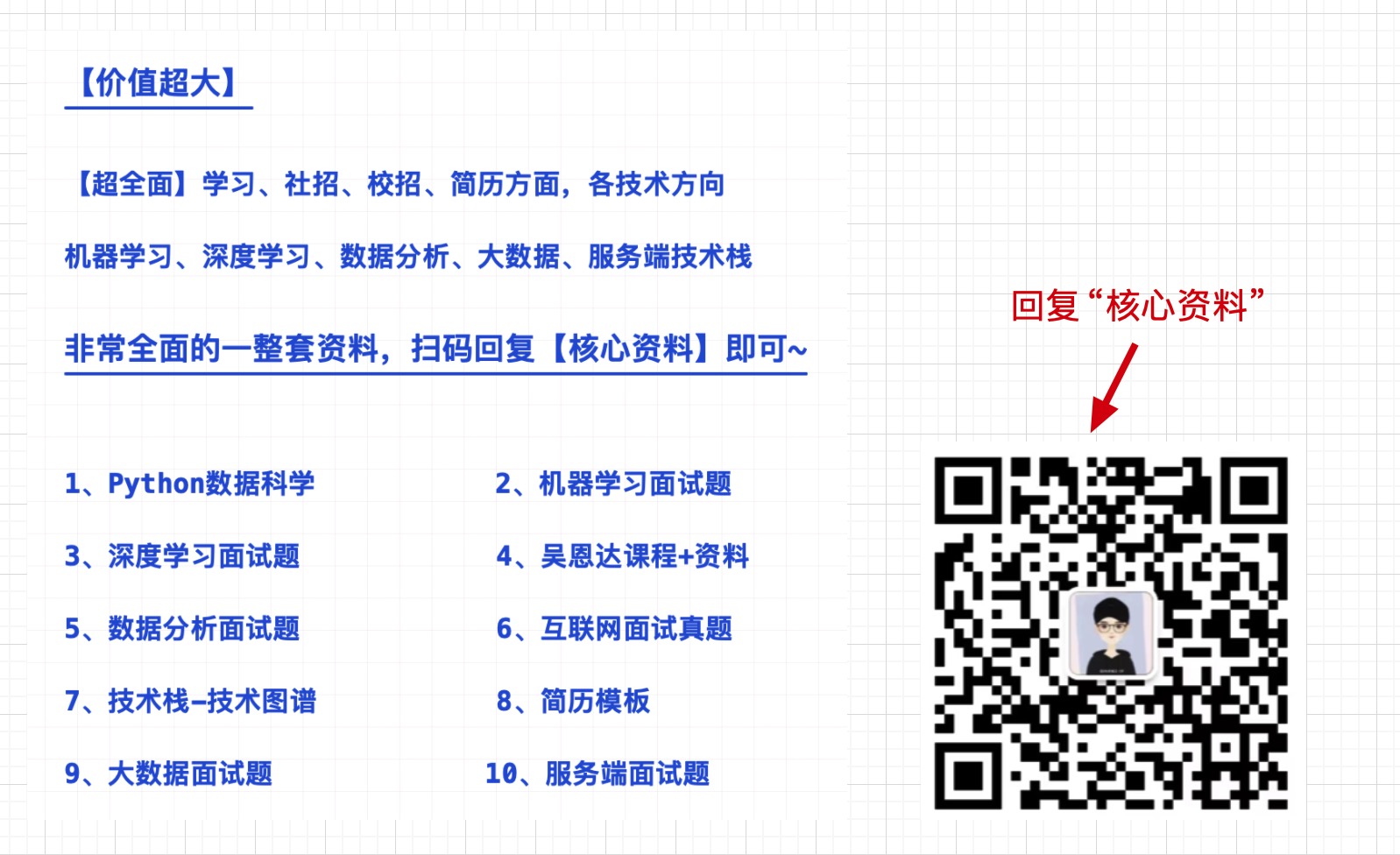我之前写过一篇名为《智能家居畅想》的文章,应该是在2016年。当时还有一篇没有发布的文章,就是看了《失控》后,我梳理了一些关于智能家居结合人工智能的想法。回到今天的智能家居,一方面,我真的看不到智能家居有什么让我感兴趣的新变化。我觉得它们只是那些对技术感兴趣的玩家的“过时”玩具。但我认为智能家居不能再这样下去了,它应该发挥应有的作用。特别是在中国老龄化的大趋势下,智能家居可以也应该成为居家养老设施改造的重要组成部分,肩负起照顾老人的重任。它不应该停留在一种我感觉不是很有创造力的状态,这只是时尚年轻人的玩具。
[En]
I have written an article called “Smart Home Imagination” before, which should be in 2016. At that time, there was another article that was not released, that is, after watching “out of Control”, I combed some ideas about smart home combined with artificial intelligence. When it comes back to smart home today, on the one hand, I really don’t see any new changes in smart home that interest me. I feel that they are just “outdated” toys of players who are interested in technology. But I think smart home can’t go on like this, it should play its due role. Especially under the general trend of aging in China, smart home can and should be an important part of the transformation of home pension facilities, and shoulder part of the important task of taking care of the elderly. It should not stay in a state where I do not feel very creative, which is just a toy for trendy young people.
关于控制
我不知道你对智能家居怎么看。在我看来,智能家居一定不能用手机或语音来控制。我这句话的核心字是“控制”。我所说的“控制”,是指人们通过自己的身体部位进行操作,以实现某种特定的表现。我认为这种操作只是人类在改变环境过程中的无奈之举。如果我不能控制它,我就不想做它,甚至根本不想说。
[En]
I don’t know what you think about smart home. In my opinion, smart home must not be controlled by mobile phone or voice. The core word of my sentence is “control”. By “control”, I mean that people operate through their own body parts to achieve the specific performance of something. I think this kind of operation is just a helpless move by human beings in the process of changing the environment. If I can not control it, I don’t want to do it or even talk at all.
每天晚上,天黑的时候,我真的喜欢自己按电灯开关来点亮房间的灯吗?这种时断时续的控制真的会给我一种满足感吗?绝对不是那么回事。即使我所说的行动被电话上的一个按钮或一个词取代,它也不会给我带来快乐。我认为这是可以避免的。因为我真正需要的是正确的光线,而不是“控制”本身。
[En]
Every night, when it is dark, do I really like to press the light switch myself in order to light up the room lamp? Will this on and off control really give me a sense of satisfaction? Definitely not. Even if the action I’m talking about is replaced by a button on the phone, or a word, it won’t bring me pleasure. I think it can be avoided. Because what I really need is the right light, not “control” itself.
就像我们小时候,晚上看书的时候,天黑了,父母轻轻地为我们打开灯。有时我们意识到灯是亮着的,有时我们太专注于它们而意识不到灯光的变化。但我们永远不会不高兴,因为我们不是亲手开的灯,对吗?我想说的是,我们真正需要的是舒适,如果我们得到照顾就更好了。
[En]
Just like when we were young, when we were reading in the evening, it was dark, and our parents gently turned on the lights for us. Sometimes we realized that the lights were on, and sometimes we were too absorbed in them to realize the changes in the light. But we would never be unhappy because we didn’t turn on the lights with our own hands, would we? What I want to say is that all we really need is comfort, and it would be better if we were taken care of.
基于以上逻辑,我也在我的文章中提到,我们所想要的就是一个无形的管家,为我们调整家里环境中的一切。而这位“管家”也要体贴周到,通过和我们一起“生活”多年的过程,我们对自己的生活习惯了如指掌。偶尔调整是不合适的,只要我们窃窃私语,马上就会调整到位。
[En]
Based on the above logic, I also mentioned in my article that all we want is an invisible housekeeper to adjust everything in our home environment for us. And this “housekeeper” should also be considerate, through the process of “living” with us for many years, we know our living habits very well. Occasionally the adjustment is inappropriate, and as long as we whisper, it will be adjusted in place immediately.
总结来说,我们需要的是智能,而不是控制。
体验智能
来,咱们来想像一下
晚上8点,你刚和家人吃过晚餐,你轻步走向书房,这时书房的灯随着你的步入而缓缓灯起。你的习惯是在晚餐过后看30分钟的书,所以当你走向书桌,书桌的台灯慢慢亮起。你随手拿起一本书来,坐下开始读。而你可能都还没有意识到,今天是盛夏8月,尽管已经是晚上8点,但天气还是很热,管家在你享用晚餐的期间已经将书房的空调已经开了,并在你到达书房之前降到了你平时常设的温度。轻音乐开启,音量是你觉得最舒适的,而且还是你平时喜欢的歌曲类型。
晚上8点30分,你离开书房,灯缓缓熄灭,空调被留了下来,因为管家知道你正准备去洗澡,而你洗完澡之后会回书房玩游戏或看一个小时的视频。而空调的温度被调高了2度,为的是你洗澡后回到书房时你的体感温度不会太低,这个调整你在之前的每一天中默许了。这时,你正准备走向浴室,而你的孩子正好叫你。你就去到孩子的房间,这时浴室预先开了的灯会先被调暗,当你在孩子的房间停留时间比较长,且跟孩子有一直在沟通时。管家知道你今天可能跟习惯不一样,会先陪孩子一会,所以浴室的准备工作将中止。灯被关掉,抽风机也先停了下来。
晚上11点,你准备睡觉了,你走进主卧室。你的伴侣已经在床上追了一会剧了。这时你会感觉到点热,但你知道过一会温度就会降下来。因为你的伴侣不喜欢太低的温度,而你喜欢冷一点。管家了解这一点,并在只有伴侣在时设置较高温度,而你回到房间时,则设置一个你们俩都觉得合适的温度。
不知道你对于上面的一系列场景是什么感觉,对于我来说,我觉得这才是我想要的智能家居。我可不想为了调整房间状态而到处找手机,或者还说一大串语音命令让设备到达我想要的状态。那种所谓的预设”模式”更是让我烦得很,像刚才那一系列场景,我估计要设置N个模式来适应,最烦的是我还要记住这些模式的名字。
方案分析
在过去的几年里,我一直在参与智能家居的研发,但我真的没有参与到实际应用中,但我觉得我对智能家居仍然有一些理解和看法。所以在这里,我试着分析一下我正在考虑的计划。我不是说做以下事情很容易,也不是说做这件事一定是正确的,但我想把它写下来,看看我是否有机会把它作为进一步探索的起点。我也希望通过我的分析,我们可以看到,虽然不会太容易,但可能没有你想象的那么难。
[En]
In the past few years, I have been involved in the research and development of smart home, but I am really not involved in practical application, but I think I still have some understanding and opinions about smart home. So here I try to analyze the plan I’m thinking about. I am not saying that it is easy to do the following, nor am I saying that it is necessarily the right thing to do, but I want to write it down to see if I have the opportunity to use it as a starting point for further exploration. I also hope that through my analysis, we can see that although it will not be too easy, it may not be as difficult as you think.
看过我之前文章的同学应该也知道,19年前我的毕业设计就是智能家居,当时就是远程点亮了一盏灯。时至今日,AlphaGo已经打败人类这么多年的今天,在”智能家居”中还见不到真正的”智能”,我真的感到有点沮丧的。
回到解决方案,在我们上一节提到的一系列场景中,我认为核心设计思想有两点:
[En]
Going back to the solution, in the series of scenarios we mentioned in the previous section, the core design idea, I think, has two points:
- 每个居住空间(如房间)应将内部的一切作为一个独立的单元进行调整,但要能够根据周围环境进行相应的调整。
[En]
each living space (such as a room) should adjust everything inside as an independent unit, but be able to adjust accordingly according to the surrounding environment.*
- 这位”管家”的行为不是预设的,它是不断在学习着你和家人的习惯。
智能家居并不需要一个全能的中央大脑并通过一套完整的逻辑代码去处理整个家的所有智能,这种做法我想有一点编程基础的同学都应该知道是不可能的。我们大多会将这套程序设计成模块化。可能是以功能来划分成多个模块,比如将室内的空气系统作为一个模块,而照明系统又作为另一个模块。也可以按空间分割,将不同的房间作为不同的模块。然后中央程序只负责给予协调性信息给各个模块,具体的工作交给具体模块去完成。既然是这样,我们就没有必要让这些代码都运行在同一台机器上,而是分成不同的机器。
这样的好处有两点:
- 对于中央设备的性能要求大大降低,将性能需求分摊到各个模块的硬件上,总体成本可能会降低。(目前价值几十块的开发板都能完成AI推理的工作,也就是TinyML,所以可以预见这种运行AI的硬件环境成本将会降低。)甚至中央设备也许可以变成是性能要求最低的那一台。
- 整个家居不会因中央设备崩溃而瘫痪,各个子模块的硬件将各自处理各自的责任领域我们可以在没有压力的情况下重新启动故障模块甚至中央设备。(在我看来,这是最重要的一点。)
[En]
the whole home will not be paralyzed by the collapse of the central equipment, and the hardware of the sub-modules will deal with their respective areas of responsibility. We can restart the faulty module or even the central device without pressure. (in my opinion, this is the most important point.)*
我的设想是,将整个家按生活空间来划分,每一个生活空间由一个支持AI的硬件(我给个名字给它吧,叫做”空间管家”)负责,而在中央有一个”总管家”负责协调。
例如,将一个房间划分为以下10个生活空间:
[En]
For example, divide a room into the following 10 living spaces:
- 客厅
- 餐厅
- 厨房
- 洗手间
- 主卧室
- 主卧洗手间
- 书房
- 孩子房
- 阳台
- 杂物间
我以” 晚上8点“的场景为例,它涉及到总管家、餐厅和书房。
🤴总管家
🙋♀️餐厅”空间管家”连接了:
- 餐厅大灯
- 空调系统(风扇或空调)
- 光线传感器(多个)
- 人体红外传感器(多个)
- 温度传感器(多个)
🙋♂️书房”空间管家”连接了:
- 房间大灯
- 书桌灯
- 空调系统
- 书房智能音箱
- 窗帘
- 光线传感器(多个)
- 人体红外传感器(多个)
- 温度传感器(多个)
🕖时间来到7点钟
1. 🙋♀️餐厅检测到有人进入餐厅,并开始停留约有10分钟左右。
-
给🤴管家发一条消息,通知“主人可能正在用餐”。
[En]
send a message to the 🤴 butler informing “the host may be having dinner”.*
-
🤴总管家
-
收到”主人可能正在晚餐”的信息
- 向所有空间发送消息,通知“主人正在用餐”。
[En]
send a message to all spaces informing “the host is having dinner”.*
🕢7点半后(约为7点45分)
1. 🙋♂️书房根据主人的惯常习惯,就餐时间估计还有15分钟左右。
- 检查当前房间温度,发现是30度,因此打开空调并将其设置为28度。
[En]
check the current room temperature and find that it is 30 degrees, so turn on the air conditioner and set it to 28 degrees.*
🕗8点左右
1. 🙋♀️餐厅检测到有人离开餐厅
- 向🤴管家发送消息,通知“有人要离开餐厅”
[En]
send a message to the 🤴 butler informing “someone is leaving the restaurant”*
- 检测是否还有人在餐厅,
- 如果有人则继续保持当前状态,
如果没有人了,就将灯熄灭,并调整空气系统至无人时的惯常状态
-
🤴总管家
-
收到”有人离开餐厅”的信息
-
向所有空间发送信息,通知“有人要离开餐厅”
[En]
send a message to all spaces informing “someone is leaving the restaurant”*
-
🙋♂️书房
-
收到”有人离开餐厅”的信息,根据主人的习惯,认为主人要看书,这时需要将书房大灯点亮,但亮度为最低
- ⏳,直到门口的传感器检测到有人进入
[En]
⏳until the sensor at the door senses someone entering*
- 再根据当前房间的亮度,将灯动态调整使房间到达主人习惯的亮度
在🌇的西北部,可能仍然有阳光投射到房间里。[En]
In the northwest of 🌇, there may still be sunlight, which is projected into the room.
当然,💡的过道灯光也会被考虑在内。
[En]
💡, of course, the aisle lights will also be taken into account.
- 同时发送”主人进入书房”的信息给🤴总管家
⏳一直等到主人走近办公桌,台灯慢慢亮起,还会根据主人的习惯动态调整桌面亮度。
[En]
⏳waits until the master approaches the desk, and the desk lamp lights up slowly, and also dynamically adjusts the desktop to the brightness of the owner’s habit.*
-
🤴总管家
-
收到”主人进入书房”的信息
- 向所有空间发送信息,通知“主人进入书房”。
[En]
send a message to all spaces informing “the host enters the study”.*
你发现了吗?所有的空间都做着自己的事情,但它们通过“管家的信息”和“各种传感器”协同工作。这种设计不会太复杂,训练模型中需要考虑的参数更少,这应该会减少训练的时间成本。
[En]
Did you find out? All spaces do their own things, but they work together through “butler’s information” and “various sensors”. This design will not be too complicated, and there are fewer parameters to be considered in the training model, which should reduce the time cost of training.
学习步骤:
1️⃣ “空间管家”收集用户习惯及环境数据,发送给”总管家”
2️⃣”总管家”存储数据,并定期将数据发往云端进行训练
3️⃣”总管家”从云端下载训练好的模型,存储下来,等”空间管家”来取
4️⃣”空间管家”取新模型,并更新自己的模型,重启
循环以上步骤
刚安装时怎么办?
- 在新家,我们将有一个标准而简单的智能管家“团队”(“首席管家”和“空间管家”),从一开始就有:
[En]
in a new home, we will have a standard and simple smart butler “team” (“chief butler” and “space butler”), which are available from the beginning:*
🧙♀️ 语音助手功能
👷♂️ 操作所有家里设备的能力
👨🔬 数据收集能力
- 我的想法是根据用户的要求在两者中选择一种:
[En]
my idea is to choose one of the two according to the user’s requirements:*
🔲 学习周期内不做任何行动,待学习期结束,使用学习期所训练的模型作为初始模型
🔲 通过众多用户的使用,管家们其实已经有普遍适合大部分人的服务行为,所以先使用这些基础模型作为初始模型
具体是怎么收集数据?
举例说,有几种情况:
1️⃣改变
当你坐在书房里感到有点热的时候,直接说:“我觉得热。”研究中的“太空管家”会把温度调低一点。此次操作将以当时的地理位置、日期、时间、室内温度、室内湿度、室外温度、室外湿度等各种参数进行记录。
[En]
When you are sitting in the study and feel a little hot, say directly: “I feel hot.” The “space butler” in the study will adjust the temperature down a bit. This operation will be recorded with various parameters at that time, such as geographical location, date, time, indoor temperature, indoor humidity, outdoor temperature, outdoor humidity and so on.
2️⃣ 不变
当你坐在书房里,你看了30分钟的书,然后离开了。”空间管家”应该要记录你对于刚才的灯光没有作出调整,表示你默许了这种光线。这些数据也应该传到云端,以使模型能继续保持这种设置。
3️⃣ 没反应
当你和伴侣在主卧时,”空间管家”将空调主动向下调整了一度。但是,直到睡前,你和伴侣都没有说太冷。所以这种操作也被记录下来,以便模型随着时间的推移还是能适应主人的习惯变化。当然,也许关灯睡觉后,也许你的伴侣才意识到有点冷,向管家说太冷了,管家升高温度,同时记录睡眠时的这次温度调整操作。
** 需要注意的是,根据机器学习的机制,这种一两次的操作是不会马上很明显地影响未来的模型。但如果这种情况多了之后,模型就会体现出调整后的变化。
这就是我对总体计划的分析。只是我刚刚把它从我的脑海中提取出来。它肯定有很多问题,很多缺陷都是我的盲点造成的。但正如我所说,我只是想以此作为探索的起点,我也想抛出一块大砖,吸引美玉。所以,如果你有任何好的想法,你可以把它们写在评论区,欢迎精彩的想法!
[En]
Well, that’s my analysis of the overall plan. It’s just that I just extracted it from my mind. It must have a lot of problems, a lot of defects caused by my blind spots. But as I said, I just want to use this as a starting point for exploration, and I also want to throw a big brick to attract beautiful jade. So if you have any good ideas, you can write them in the comment area, welcome wonderful ideas!
下一步,如果条件允许,我将尝试用一个简单的开发板和一些传感器来完成一个原型,看看是否可行。当然,这将是一次年化的尝试。
[En]
Next, if conditions permit, I will try to complete a prototype with a simple development board and some sensors to see if it is feasible. Of course, this will be an annualized attempt.
可能有的一些疑问
看这里,关于上述方案的例子,估计大家还有一些疑问。我把我的想法写在这里,供大家参考和讨论。如果你有任何问题,你也可以把它放在评论区。我会把它整理好放在这里。
[En]
See here, with regard to the example of the above plan, it is estimated that you still have some questions. I will write what I think of here for your reference and discussion. If you have any questions, you can also put it in the comments section. I will sort it out and put it here.
1. Q:为什么不用人脸识别,那些人体红外传感器不能分辨出是谁进入了哪个区域,也不知道人数。
A:没错,对于方案本身来说,用人脸识别肯定是最佳的,也不排除用这样的方案。但你将自己代入,在家里装N个摄像头,你感觉这是什么样的地方?同时,我们毕竟在家里肯定有些私密的行为,摄像头与隐私之间有一定的冲突。
2. Q:关于隐私,这个方案有什么好处?
A:这题其实是设问句啦。我想说,因为用的是分布在各个空间的小硬件,其实就是边缘计算的概念。这时所有推理都在终端进行,也就是说,除了协助优化模型并协助训练的数据外,不需要将所有数据传到外部,特别是推理时用的数据更是不用外传,数据只在本地使用然后销毁就可以了。比如说上题说到的摄像头,这时可以只提供摄像头数据到空间管家的硬件上马上使用,不需要向外网传递,隐私问题可以算是在技术上解决掉了,剩下的问题就是人们信不信真的没有外传,同时还有当人看着N个摄像头在自己家里时作何感想😏。
Original: https://blog.csdn.net/fengcan/article/details/124151006
Author: 长风Eric(fengcan)
Title: 智能家居的新想法(2022)
原创文章受到原创版权保护。转载请注明出处:https://www.johngo689.com/515103/
转载文章受原作者版权保护。转载请注明原作者出处!

